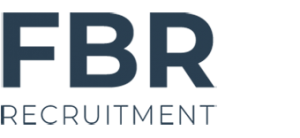The aged old question we get asked as a recruitment agent, are all recruitment agents the same? Well, simply put, no. Every recruitment agent has their own area of expertise and skills. Didn’t think we were going to say that huh? We get it, our industry is extremely competitive and fierce in its approach at times. Many recruiters may indulge in what some call “trash talk”, but that’s not our style.
The thing is, no recruitment agent is the same so in order to find the best talent you need to work with one that aligns with your own ethos as well as the industry.
But what else is there that we can debunk? Let’s look into some of the most commonly asked questions that don’t always give recruitment agencies the best reputation. We’re going to try and explain them, or at least offer insight.
Why do recruitment agents not call back?
Straight for the kidney with that question. We have no explanation for this one, because if you ask any of our agents at FBR we always call back.
Recruitment agents work in an office, and as everyone knows you can’t be tied to a desk all day. There are meetings, bathroom breaks, and other things that happen. But if we miss a call we always call back. That’s just common courtesy.
Anyway moving swiftly on.
Recruiters never recruit new talent
This is a bit of a faux pas if you ask us. While some recruiters may headhunt previous talent from other roles they placed in the past, it isn’t always ethical to do so.
It causes many issues for everyone involved. Now, if a past candidate comes across our table and wants a new role; that is a different story.
The world is full of amazing people with vastly different skills and talents. As a recruitment agent part of the wonder of our industry is making those perfect placements and finding those people.
Besides, with technology and many roles being able to be remote or hybrid, finding new talent shouldn’t be difficult.
Recruiters send all applications to the hiring manager
What people mean by this is a common misconception that recruitment agents will just pop out and advertise and then send any CV to their clients to book in an interview.
We can tell you that is absolutely not the case, at least for our own agency. We pride ourselves on our internal vetting process, this means that we view each CV and application as well as speak with the candidates before presenting them to our clients.
We are experts in our field, and we’ve been doing this for a long time. Sometimes you just know when a candidate is going to work out and be the right one.
Recruiters only care about commission
This one is false. Do recruitment agencies need to earn money, yes, like everyone in the world, recruiters need to earn a living. However, we don’t just care about commissions. We are here as a guide to help candidates find the right job to suit their requirements, experience, and needs.
FBR recruitment agents work hard to fully understand what a candidate or company is looking for. This ensures that we are able to find the right match sooner rather than later, which saves everyone time and money.
Recruiters have access to the same roles as everyone else
Not necessarily true. The way many recruiters work is that companies approach a recruitment agent to help them find a new employee. This means that once a company has agreed to use that recruitment agent then that job is only available via that recruitment agency.
This means that there are many roles on the market that are exclusive to recruitment agents. Not only that, but in many cases when companies reuse the same recruitment agency, recruiters can begin to prepare for any new role requests. Essentially candidates in their database would be the first to know about any new job opportunities before they hit the market.
Recruiters only advertise jobs
Again this couldn’t be further from the truth. Recruitment agencies like FBR work to ensure that the job descriptions are accurate and well founded. We also help make sure that any and all candidates have the relevant skills, experience and qualifications before sending applications.
But most importantly, we make sure that the role is competitive. We check that the salary is in line with expectations as well as ensuring that the candidates are going to be compensated for their own skill level.
Recruitment agents are the guards that protect candidates and companies. We make sure that candidates are paid what they deserve as well as knowing what they are signing up for. And for companies, recruitment agents save time and money filtering through applications, and guiding companies to employing the best candidates for their company.
Recruitment is all about people, when you work with the right ones it makes a difference. At FBR we work with construction companies to ensure that they are getting the talent they need.
If you are looking for a new role, view our jobs board or speak to our agents today.
Are you a company looking to recruit the best talent? Our team can help you, call our experts now.








